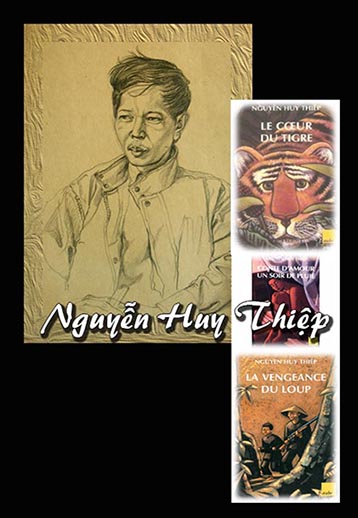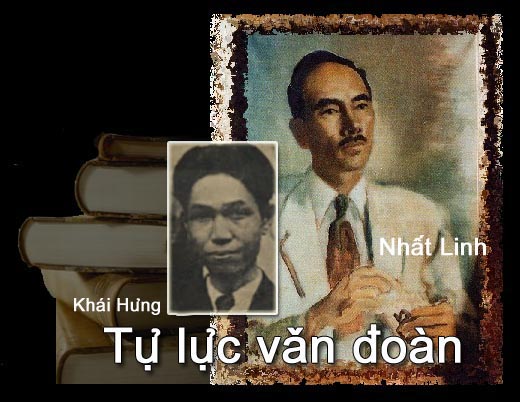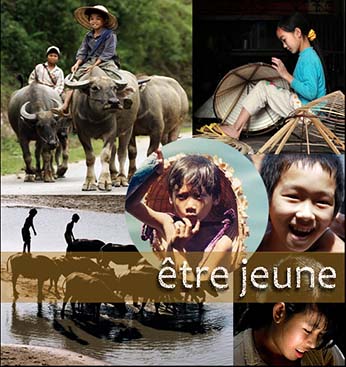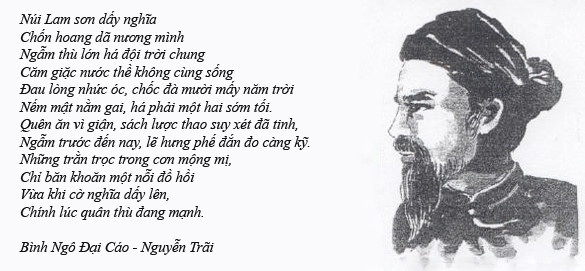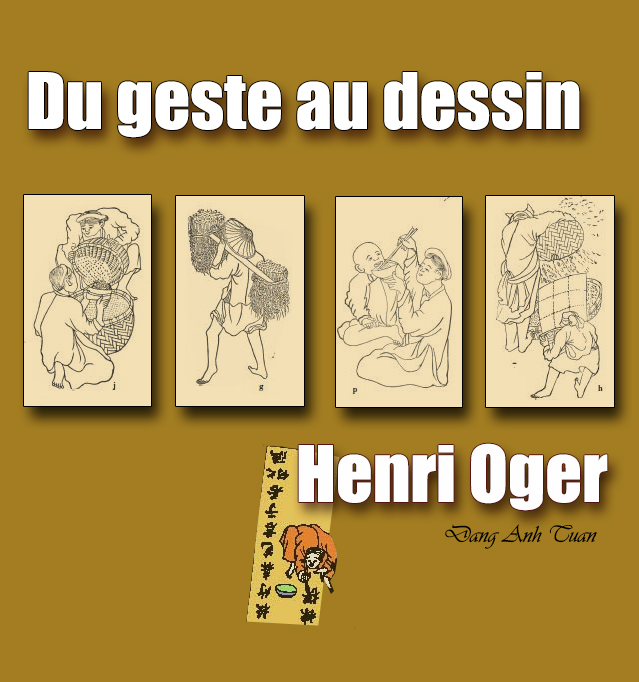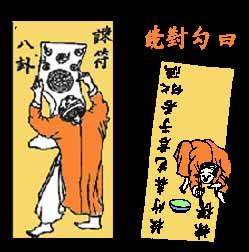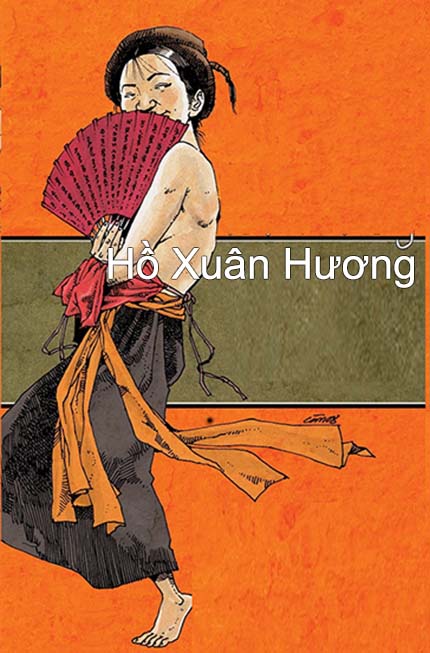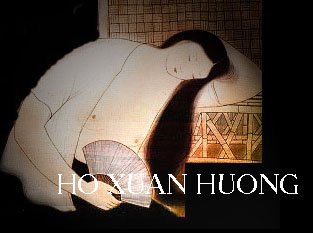Được tuyển dụng cho đến năm 1986 trong công việc vẽ tranh minh họa cho sách giáo khoa tại văn phòng ở Hànội, Nguyễn Huy Thiệp, lợi dụng chính sách mới rộng rãi được gọi là « Đỗi Mới » trong Đại hội thứ 6 của đảng cộng sản Việt Nam mà ông xuất bản tháng giêng năm 1987, tuyển tập đầu tiên của ông có mang tên là “Những cơn gió Hứa Tát” được đăng trên tạp chí uy tín của Hội Nhà văn toàn quốc “Văn nghệ”.
Ông không quá mất nhiều thời gian để được sự thành công. Nhưng phải nói ông được như vậy đấy là nhờ tuyển tập “Tướng về hưu” ra mắt vào tháng 6 năm 1987. Điều này không chỉ gây ra một cơn chấn động trong dư luận của ngừơi Viêt mà còn xem đây là niềm hy vọng được nhìn thấy theo gương ông một thế hệ nhà văn trẻ mới không khoan nhượng, có tính độc lập và phê phán như Phạm Thị Hoài, Bảo Ninh vân vân mà cho đến nay dường như không có tồn tại trong văn học Việt Nam.
Tướng về hưu
Trái tim hổ
Sự báo thù của soái
Ma quỉ sống giữa chúng ta
Chuyện tình kể trong đêm mưa.
Vàng và lửa
Chú Hoạt tôi
Tuổi hai mươi yêu dấu vân vân…
Nhờ các truyện ngắn, Nguyễn Huy Thiệp đã trở thành nhân vật hàng đầu của văn học Việt Nam. Các độc giả của ông, luôn cả những người ở hải ngoại, nhận thấy ở nơi ông không chỉ tài năng của một nhà văn mà còn có sự liều lĩnh dám phá bỏ những điều cấm kỵ và những điều chưa nói được duy trì cho đến bây giờ bởi phong tục và một hệ thống không còn được trọng dụng. Ông hiện được xem là nhà văn vĩ đại nhất của Việt Nam. Với lối viết giản dị, ông dễ dàng làm người đọc nhạy cảm vì ông biết cách sử dụng những ẩn dụ và ám chỉ bằng ngôn ngữ thô thiển của mình để mô tả thực tế ngày nay ở Việt Nam và để nói lên những tha hóa hiện đang hình thành cơ cấu xã hội của đất nước.
Bằng cách lựa chọn những tình huống và các anh hùng tiêu biểu trong truyện ngắn và truyện cổ tích của mình, ông làm chúng ta kinh hãi khám phá ra tất cả những mâu thuẫn của xã hội Việt Nam, tất cả những sự thật không thể chịu đựng nổi, sự hoại tử của cái ác, sự suy sụp của các giá trị đạo đức của một xã hội. Ông ta dám vạch trần sự thất bại của một hệ thống giữa quần chúng, dày vò thân xác xã hội với khiếu hài hước tối tâm và tính hiện thực lạnh lùng của mình. Ông cố gắng cho chúng ta thấy tất cả các khía cạnh của xã hội thông qua những bài viết ngắn gọn và giản dị với tài năng của một người kể chuyện và của một nhà văn, hoàn toàn đoạn tuyệt với nhóm nhà văn có thiện cảm với chế độ.
Nếu ông có thể viết truyện ngắn một cách dễ dàng đáng kinh ngạc, thì điều này phần lớn là nhờ lúc thời thiếu niên, ông sống ở môi trường nông thôn với mẹ và nhờ được sự đào tạo thành nhà sử học mà ông theo học ở Đại học Sư phạm Hà Nội từ năm 1970. Tác phẩm của nhà sử học Trung Quốc Tư Mã Thiên có ảnh hưởng rất lớn đến các bộ sưu tập của ông, đặc biệt là lối viết của ông. Ông từng nói với tờ báo Pháp Libération vào năm 1990: Tôi không tin bạn có thể viết khi bạn đã mất gốc. Ông thích ở lại Việt Nam hơn để có thể viết những tuyển tập của mình, ghi lại sự quan sát của một hệ thống và bày tỏ sự tức giận cũng như nỗi lưu vong ở nội tâm của một người bị đè bẹp bởi nhiều năm bùn lầy, chiến tranh và thiếu thốn. Dù chưa bao giờ tham gia chính trị nhưng ông luôn bị chính quyền Việt Nam nghi ngờ vì quyền tự do ngôn luận của ông khiến bộ máy nhà nước phải lo sợ và ông là hiện thân biểu tượng tâm trạng của cả một dân tộc tìm kiếm một kho tàng đã bị mất và bị đánh cắp.
Tất cả những người đứng ra bảo vệ ông, đặc biệt là giám đốc tạp chí « Văn Nghệ », đều bị sa thải. Còn có cả chiến dịch bôi nhọ ông không ngần ngại trên báo chí chính thống. Ông bị chỉ trích vì ông xuất bản tác phẩm có ba tập mang tính cách lịch sử làm tổn thương vị anh hùng dân tộc Quang Trung qua truyện “Nhân phẩm”. Bất chấp sự kiểm duyệt và lời đe dọa, những tờ báo dũng cảm vẫn tiếp tục xuất bản các tuyển tập của ông cho đến ngày nay, một số trong đó đã xuất hiện bằng tiếng Pháp bởi nhà xuất bản « Aube » ở Pháp.
Những anh hùng trong bộ sưu tập của ông là những người bệnh tâm thần về mặt tình dục, đạo đức và xã hội. Họ là những người bình thường mà những thay đổi thất thường của cuộc sống và hệ thống dẫn đến sự trụy lạc, sỉ nhục, lạm dụng, điên rồ và trục lợi. Trong truyện ngắn “Không Có Vua”, ông già Kiên thích lén lút ngắm nhìn những phụ nữ trẻ khỏa thân, đặc biệt là con dâu Sinh vì ông phải nuôi 5 đứa con nên không có khả năng tái hôn. Ông nói với con trai mình là Đoài khi người này công khai chỉ trích ông. Thật bàng hoàng khi chứng kiến cụ Panh 80 tuổi chết vì đau tim trong truyện ngắn « Vùng đất bị lãng quên » khi cố chặt cây để thực hiện thử thách và có thể cưới được bé gái 14 tuổi người mà ông đã gặp trong thời gian ở Yên Châu. Trong truyện “Tướng về hưu”, người hùng của ông, tướng Thuận không biết kiềm chế khi dám nói trước mặt cấp trên về ba hoạt động hình thành mô hình kinh tế thiết yếu trong hệ thống hiện nay: làm vườn, nuôi cá và vật nuôi trong nhà. Ông ta chuộc lỗi mà ông ta không thể tự bảo vệ mình. Ông ta thích một cái chết vinh quang hơn một cuộc sống ô nhục. Ông được chôn cất với đầy đủ nghi lễ trọng thể trong quân đội. Đây là một người đàn ông tuyệt vời. Ông đã hy sinh vì đất nước trong một lần làm nhiệm vụ, điều mà tướng Chương đã kể lại cho con trai ông. Còn được thấy lợi nhuận và hệ thống bè phái đang phát triển ở mọi tầng lớp và mọi cấp độ ở trong xã hội. Mỗi nước đều có một phong tục riêng, đó là điều ông Thuyết nói với những người thợ xẻ trong truyện ngắn “Những người thợ xẻ”. Tương tự như vậy, con dâu của tướng Thuận, lợi dụng chức danh bác sĩ, chịu trách nhiệm phá và nạo thai, thu hồi lại những bào thai bị bỏ rơi mà mỗi tối cô ta mang về nhà trong bình thermo để nấu lại và cho lợn và chó chăn cừu ăn, hiện nay là nguồn tài chính đáng kể của một gia đình Việt Nam.
Nguyễn Huy Thiệp tiếp tục viết những tuyển tập ngắn của mình với tư cách giận dữ. Tựa như người dân Việt, ông cố gắng tìm ra một giải pháp cho nhu cầu hằng ngày của mình và nhất là mang lại một ý nghĩa cho sự tồn tại của mình cũng như nhân vật tên Quý trong “Thương nhớ đồng quê”: Là một người trí thức thì phải có khả năng mang lại một ý nghĩa cho cuộc sống mà ta đựơc có. Mặc dù có một gia tài quá cay đắng, ông vẫn hài lòng khi ông có được ít nhất niềm an ủi qua các truyện ngắn và cổ tích cùa ông.
Cantonné jusqu’en 1986 dans le travail de dessin des illustrations pour manuels scolaires dans un bureau des Editions de l’Education à Hanoï, Nguyễn Huy Thiệp, profitant de la nouvelle politique d’ouverture connue sous le nom » Ðỗi Mới « ( Renouveau ) lors du 6ème congrès du parti communiste vietnamien, publia en Janvier 1987 son premier recueil intitulé « Les vents de Hứa Tát » paru dans le journal prestigieux de l’Association des écrivains nationaux « Littérature et Art ».
Son succès ne tarda pas. Mais il le dut surtout à son recueil intitulé « La retraite du général » quand celui-ci parut en Juin 1987. Cela provoqua non seulement un séisme dans l’opinion publique vietnamienne mais aussi un espoir de voir drainer dans son sillage une nouvelle génération de jeunes écrivains ( Phạm Thị Hoài, Bảo Ninh etc.) sans compromission et ayant un esprit d’indépendance et de critique qui semble être quasi inexistant jusqu’alors dans la littérature vietnamienne.
Un général à la retraite
Le cœur du tigre
La vengeance du loup
Les démons vivent parmi nous.
Conte d’amour. Un soir de pluie
L’or et le feu
Mon oncle Hoat
A nos vingt ans etc.
Grâce à ses recueils de nouvelles, Nguyễn Huy Thiệp devint du jour au lendemain la figure de proue de la littérature vietnamienne. Ses lecteurs y compris ceux de la diaspora retrouvèrent en lui non seulement le talent d’un écrivain mais aussi l’audace de briser le tabou et le non-dit entretenus jusqu’alors par les coutumes et par un système tombé en désuétude. On le considère actuellement comme le plus grand écrivain vietnamien. Avec son style très sobre, il arrive à sensibiliser facilement le lecteur car il sait se servir des métaphores et des allusions avec son langage cru pour décrire la réalité d’aujourd’hui du Vietnam et celle de toutes les aliénations formant actuellement le tissu social du pays.
En sélectionnant des situations et des héros types dans ses nouvelles et ses contes, il nous fait découvrir avec effroi toutes les contradictions de la société vietnamienne, toutes les vérités insupportables, le gangrène du Mal, l’effondrement des valeurs morales d’une société. Il ose déballer sur la place publique la débâcle d’un système, fouailler la chair sociale avec son humour noir et son réalisme glacial. Il arrive à nous montrer toutes les facettes de la société à travers ses textes brefs et dépouillés avec le talent d’un conteur et celui d’un écrivain en rupture totale avec la génération des écrivains compromis avec le régime. S’il arrive à écrire ses nouvelles avec une facilité étonnante, cela est dû en grande partie à sa jeunesse qu’il a vécue dans le milieu rural avec sa mère et à sa formation d’historien qu’il a suivie à Hanoï dans l’université de Pédagogie à partir de 1970. L’œuvre de l’historien chinois Si Ma Qian (Tư Mã Thiên) a influé énormément sur ses recueils, en particulier sur son style. Il a déclaré un jour en 1990 au journal français Libération: Je ne crois pas qu’on puisse écrire quand on est déraciné. Il a préféré rester au Viêt-Nam dans le but de pouvoir écrire ses recueils, de relever le constat d’un système et d’exprimer la colère et l’exil intérieur d’un être broyé par des années de boue, de guerre et de privations. Bien qu’il ne fasse jamais de politique, il est toujours suspect aux yeux des autorités vietnamiennes car sa parole libre fait trembler les appareils de l’état et il incarne l’expression symbolique de l’état d’âme de tout un peuple à la quête d’un trésor perdu et volé.
Tous ceux qui ont pris sa défense en particulier le directeur de la revue Văn Nghệ ont été limogés. On n’a pas hésité à lancer dans le passé une campagne de dénigrement dans la presse officielle. On lui reprocha la publication de la trilogie à argument historique qui portait atteinte au héros national Quang Trung à travers l’œuvre « Dignité ». Malgré la censure, les menaces et les intimidations, les journaux courageux continuent à publier aujourd’hui ses recueils dont certains sont déjà parus en français aux éditions de l’Aube.
Les héros de ses recueils sont des êtres aliénés sexuellement, moralement et socialement. Ce sont des gens ordinaires que les aléas de la vie et le système précipitent dans la perversion, l’humiliation, l’abus, la folie et le profit. Dans « Il n’y a pas de roi », le vieux Kiên préfère reluquer en douce sur les jeunes femmes à poil, en particulier sa bru Sinh car à cause de ses 5 enfants qu’il est obligé de nourrir et d’élever, il n’a pas le moyen de se remarier, ce qu’il dit à son fils Ðoai lorsque ce dernier l’a critiqué ouvertement. C’est choquant de voir mourir d’une crise cardiaque dans « La terre oubliée » un homme âgé de 80 ans, Panh qui a tenté d’abattre un arbre pour relever le défi et pour pouvoir épouser une jeune fille de 14 ans qu’il a connue lors de son passage à Yên Châu. Dans » Un général à la retraite », son héros, le général retraité Thuận ne sait pas retenir sa parole en osant parler devant son supérieur des trois activités formant le modèle économique indispensable dans le système actuel: le jardinage, l’élevage des poissons et des animaux domestiques. Il expie une faute dont il n’a pas su se préserver. Il préfère une mort honorable à la vie ignominieuse. On l’a enterré avec tous les honneurs militaires. C’est un grand homme. Il est mort pour la patrie au cours d’une mission, ce que le général Chương a dit à son fils. On voit se développer à toutes les couches de la société et à tous les niveaux le profit et le copinage. A chaque pays, ses coutumes, ce qu’a dit Mr Thuyết à ses employés scieurs dans la nouvelle « les scieurs de long ». De même, la bru du général Thuận, profitant de son rôle médecin, chargé des avortements et des curetages, récupère les fœtus abandonnés qu’elle ramène à la maison tous les soirs dans une bouteille Thermos pour les faire cuire et pour nourrir les cochons et les chiens bergers constituant actuellement une ressource financière non négligeable pour une famille vietnamienne.
Nguyễn Huy Thiệp continue à croquer rageusement le Viêtnam avec ses recueils et ses contes. Comme les gens du Vietnam, il essaie de trouver une solution à ses besoins quotidiens et de donner surtout un sens, une signification à son existence comme son héros Mr Quý dans « Nostalgie de la Campagne (Thương Nhớ Ðồng Quê) »: Être intellectuel c’est être capable de donner un sens à la vie qu’on mène. Malgré un héritage amer, il se contente d’avoir néanmoins sa consolation à travers ses récits et ses contes.

